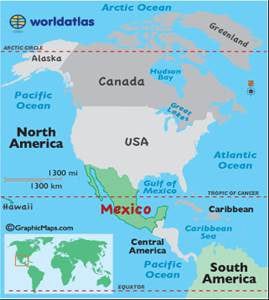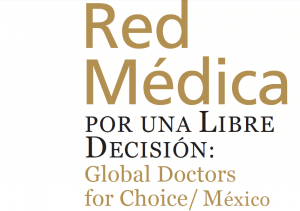Mexico (Grupo Médico por una Libre Elección)
Mexico: Reproductive Health and Abortion
- Legality:
- All 31 states permit abortion in cases of rape; 25 states to save the life of a pregnant woman; 12 states in cases of severe risk to a woman’s health; and 13 in cases of severe fetal impairment.
- Mexico’s Constitution includes the right of all citizens to “decide in a free, responsible, and informed manner on the number and spacing of their children” (1974).
- While abortion is legal up to 12 weeks of pregnancy in Mexico City (since 2007), it is severely restricted in Mexico’s 31 states.
- All 31 states permit abortion in cases of rape;
- 25 states to save the life of a pregnant woman;
- 12 states in cases of severe risk to a woman’s health; and
- 13 in cases of severe fetal impairment.
- Contraception:
- The government must offer family planning services at no cost in public health institutions (1974).
- 4 million women are at risk of unintended pregnancy because they are sexually active (married or never married), do not want a child soon, and are not using a modern contraceptive method.
- 55% of pregnancies were unintended (2009). Of these unintended pregnancies, 54% end in abortion, 34% end in unplanned births, and 12% end in miscarriages.
- Complications:
- Stigma and lack of availability limit access to legal abortions.
- In Mexico City, where abortion is legal and first-trimester abortions have almost no complications, some hospitals refuse to provide legal abortion services, claiming their doctors are conscientious objectors.
- Despite restrictions abortion is widespread: over 1 million clandestine abortions occurred in 2009.
- 36% of clandestine abortions are expected to result in complications that require medical treatment. 25% of these women do not receive the medical care they need.
- Poor rural women with complications are more at risk, as 45% will not receive care – in contrast to 10% of non-poor urban women.
- Sources:
- https://www.guttmacher.org/pubs/FB-pregnancy-abortion-Mexico.html
- https://www.guttmacher.org/fact-sheet/unintended-pregnancy-and-induced-abortion-mexico
GDC/Mexico: Recent Highlights
- Increased knowledge and capacity for advocacy:
- Provided Values Clarification Training to 48 abortion providers.
- Provided abortion advocacy training for 8 CAMILE doctors.
- Trained and certified 40 doctors in abortion provision in collaboration with the University of Oaxaca.
- This is the first abortion provider certification in Latin America.
- The aim is to train medical students in order influence young providers and cultivate the next generation of providers.
- Designing safe abortion care booklet for medical residents and students.
- Created a reference tool to clarify the legal framework regarding sexual and reproductive rights in Mexico and outline how this framework affects doctors’ work, in order to share it with maternal and perinatal mortality and morbidity review committees.
- Presented GDC/Mexico reproductive health advocacy videos to 12 doctors and 12 lawyers during GDC/Mexico’s 5th Annual Meeting with GIRE, to share the legal aspects of abortion in Mexico and encouraged doctors and lawyers to collaborate in advocacy.
- Mitigated conscientious objection (CO) to abortion:
- Are monitoring the impact of the global gag rule on funding in Latin America.
- Participated in the CLACAI meeting.
- Engaged in political advocacy:
- Campaigned as medical expert in legislators’ chamber to remove abortion from the federal Mexican penal code.
- Worked on safe abortion care guidelines with MoH in Veracruz and Jalisco, and so now are collaborating in safe abortion care with the four most populated states:
- the State of Mexico (16 million),
- the Cuidad de Mexico (9 million),
- Veracruz (8.5 million), and
- Jalisco (8 million).
- Working on registering mifepristone in the Chile, Colombia, and Peru via Marie Stopes International.
GDC/Mexico: Leadership
Dr. Alfonso Carrera is the founder and lead doctor of GDC/Mexico.
GDC/Mexico’s team of doctors intentionally chooses to collaborate closely with groups of lawyers in order to share expertise and leverage advocacy efforts.
GDC/Mexico: Lead Doctor Profile
 Alfonso Carrera, MD
Alfonso Carrera, MD
GDC/Mexico Lead Doctor
Dr. Alfonso Carrera, the founder of GDC/Mexico, is the Medical Director of Marie Stopes Mexico. He also has served as an Associate Professor in research and ethics for gynecology and obstetrics at the Universidad Nacional Autónoma de México (UNAM) and professor of gynecology and obstetrics at the Universidad Autónoma del Estado de México. His research has focused on maternal morbidity and mortality, fertility, and reproductive health. He is an international member of the American Fertility Society and the Mexican Association of Gynecology and Obstetrics, and a member of the Mexican Association of Reproductive Medicine.




